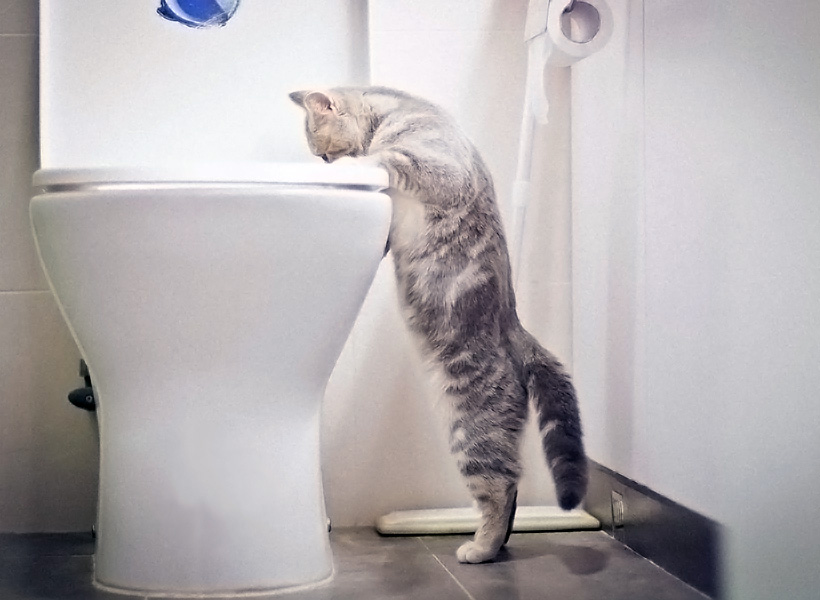Why Flushing Cat Poop Down Your Toilet Isn't a Good Idea - Tips for Proper Handling
Why Flushing Cat Poop Down Your Toilet Isn't a Good Idea - Tips for Proper Handling
Blog Article
We've found the article involving How to Dispose of Cat Poop and Litter Without Plastic Bags listed below on the net and thought it made good sense to discuss it with you over here.

Introduction
As cat owners, it's important to be mindful of how we dispose of our feline buddies' waste. While it might appear practical to flush cat poop down the toilet, this method can have damaging repercussions for both the setting and human health.
Environmental Impact
Flushing cat poop introduces unsafe virus and bloodsuckers into the water system, positioning a significant risk to marine ecosystems. These contaminants can adversely affect aquatic life and compromise water high quality.
Wellness Risks
Along with environmental worries, flushing cat waste can also posture health threats to people. Cat feces might have Toxoplasma gondii, a parasite that can trigger toxoplasmosis-- a possibly extreme disease, especially for expectant ladies and people with damaged body immune systems.
Alternatives to Flushing
Thankfully, there are more secure and a lot more liable ways to deal with feline poop. Consider the adhering to choices:
1. Scoop and Dispose in Trash
The most usual technique of getting rid of pet cat poop is to scoop it into an eco-friendly bag and toss it in the trash. Make certain to make use of a dedicated clutter inside story and deal with the waste quickly.
2. Usage Biodegradable Litter
Opt for naturally degradable cat clutter made from materials such as corn or wheat. These clutters are eco-friendly and can be safely thrown away in the garbage.
3. Hide in the Yard
If you have a lawn, think about burying feline waste in a designated location away from vegetable gardens and water resources. Be sure to dig deep sufficient to prevent contamination of groundwater.
4. Mount a Pet Waste Disposal System
Purchase a pet garbage disposal system especially created for cat waste. These systems make use of enzymes to break down the waste, minimizing odor and ecological effect.
Conclusion
Liable pet possession expands past providing food and shelter-- it also involves proper waste administration. By avoiding purging cat poop down the commode and choosing different disposal techniques, we can minimize our environmental footprint and shield human health.
Why You Should Never Flush Cat Poop Down the Toilet
A rose by any other name might smell as sweet, but not all poop is created equal. Toilets, and our sewage systems, are designed for human excrement, not animal waste. It might seem like it couldn’t hurt to toss cat feces into the loo, but it’s not a good idea to flush cat poop in the toilet.
First and foremost, assuming your cat uses a litter box, any waste is going to have litter on it. And even the smallest amount of litter can wreak havoc on plumbing.
Over time, small amounts build up, filling up your septic system. Most litter sold today is clumping; it is made from a type of clay that hardens when it gets wet. Ever tried to scrape old clumps from the bottom of a litter box? You know just how cement-hard it can get!
Now imagine just a small clump of that stuck in your pipes. A simple de-clogger like Drano isn’t going to cut it. And that means it’s going to cost you big time to fix it.
Parasitic Contamination
Believe it or not, your healthy kitty may be harboring a nasty parasite. Only cats excrete Toxoplasma in their feces. Yet it rarely causes serious health issues in the cats that are infected. Most people will be fine too if infected. Only pregnant women and people with compromised immune systems are at risk. (If you’ve ever heard how women who are expecting are excused from litter cleaning duty, Toxoplasma is why.)
But other animals may have a problem if infected with the parasite. And human water treatment systems aren’t designed to handle it. As a result, the systems don’t remove the parasite before discharging wastewater into local waterways. Fish, shellfish, and other marine life — otters in particular — are susceptible to toxoplasma. If exposed, most will end up with brain damage and many will die.
Depending on the species of fish, they may end up on someone’s fish hook and, ultimately on someone’s dinner plate. If that someone has a chronic illness, they’re at risk.
Skip the Toilet Training
We know there are folks out there who like to toilet train their cats. And we give them props, it takes a lot of work. But thanks to the toxoplasma, it’s not a good idea.

As a fervent reader about Don’t flush cat feces down the toilet, I thought sharing that piece of content was worthwhile. Loved our blog? Please share it. Help another person discover it. Thanks so much for taking the time to read it.
Call Today Report this page